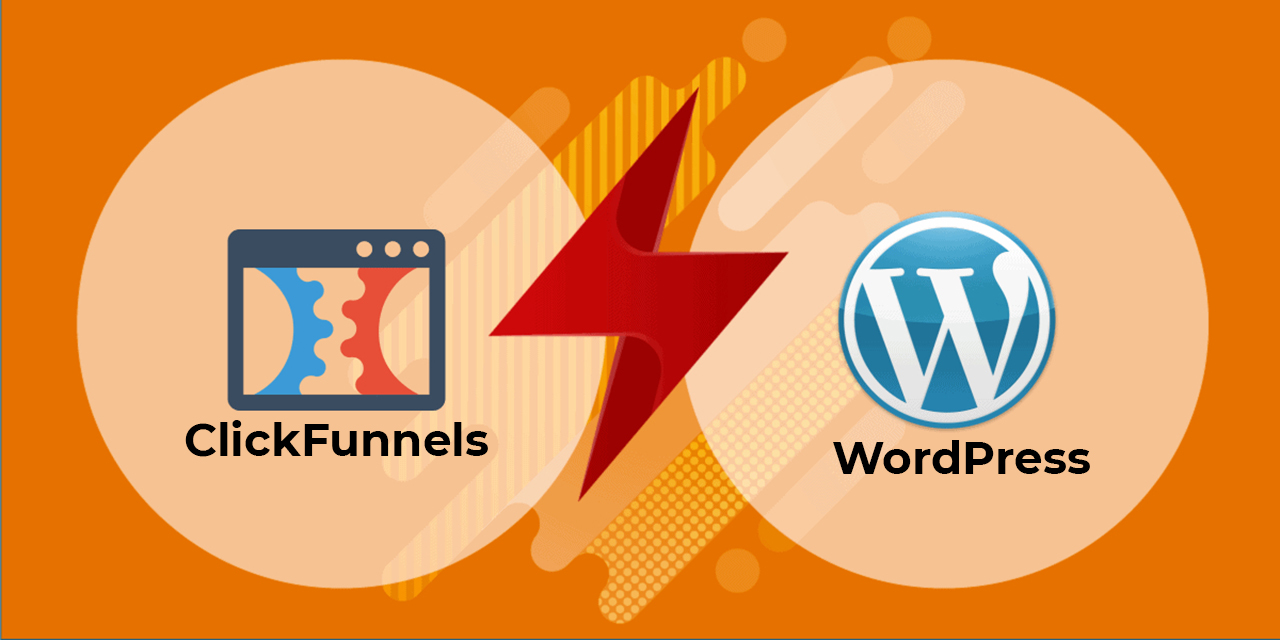Introduction: Understanding ClickFunnels and WordPress
In today’s digital landscape, building an effective online presence is crucial for the success of any business. Two popular platforms that offer website and funnel-building capabilities are ClickFunnels vs WordPress.
While both platforms serve similar purposes, they have distinct features and functionalities that cater to different business needs. In this article, we will compare ClickFunnels and WordPress to help you decide which platform is best suited for your business.

User-Friendliness and Ease of Use
ClickFunnels prides itself on its user-friendly interface, designed specifically for non-technical users. ClickFunnels provides a user-friendly interface with a simple drag-and-drop editor, enabling users to effortlessly create sales funnels and landing pages without requiring any coding knowledge.
In contrast, WordPress presents a more challenging learning curve, particularly for individuals who are new to website development and management. While it provides flexibility and customization options, setting up and managing a WordPress website may require technical expertise or the assistance of a web developer.
Customization and Design Options
When it comes to customization and design, WordPress takes the lead. With thousands of themes and plugins, WordPress offers unparalleled flexibility in creating visually appealing websites.
You have complete control over the design and functionality of your site. ClickFunnels, on the other hand, provides a more streamlined and focused approach to design, with pre-built templates optimized for conversions. While customization options are more limited, ClickFunnels creates high-converting sales funnels.
Landing Page and Funnel Building
ClickFunnels is built explicitly for creating sales funnels and landing pages. It offers a range of templates tailored for different industries and purposes, making it easy to create effective sales funnels.
WordPress, on the other hand, requires plugins or third-party tools to build sophisticated sales funnels. While WordPress can achieve similar results, it may require more effort and technical know-how.
E-commerce Capabilities
Both ClickFunnels and WordPress provide e-commerce capabilities, but they approach it differently. ClickFunnels optimize the sales process, offering features like order bumps, upsells, and down sells to maximize revenue. It integrates seamlessly with payment gateways and provides robust analytics for tracking conversions.
On the other hand, WordPress has numerous e-commerce plugins like WooCommerce that provide a comprehensive platform for online stores. It offers more flexibility in terms of store management and inventory control.
Search Engine Optimization (SEO)
WordPress is renowned for its SEO capabilities. With its extensive range of SEO plugins and customizable settings, WordPress allows you to optimize your website for search engines effectively.
ClickFunnels, while not specifically built for SEO, provide basic optimization features. However, it may require additional tools or integrations to achieve advanced SEO functionality.
Integration with Third-Party Tools and Services
ClickFunnels and WordPress offer integration with various third-party tools and services. ClickFunnels has built-in integrations with popular email marketing platforms, CRM systems, and payment gateways, making connecting and automating your business processes easy.
With its extensive plugin ecosystem, WordPress offers compatibility with virtually any third-party tool or service you may require.
Pricing and Cost Comparison
ClickFunnels operates on a subscription-based model with different pricing tiers based on your desired features and capabilities. The pricing ranges from $97 to $297 per month, depending on your chosen plan. WordPress, on the other hand, is an open-source platform available for free.
However, it would be best to consider the cost of web hosting, domain registration, premium themes, and plugins, which can vary depending on your requirements.
Security and Maintenance
ClickFunnels handles security and maintenance on their platform, ensuring that your funnels and customer data are secure. WordPress’s responsibility for safety and maintenance falls on the website owner.
While WordPress is fast, you must regularly update themes, plugins, and WordPress core to maintain a secure website.
Support and Community
ClickFunnels offers dedicated customer support through email and live chat. They also provide extensive documentation and video tutorials to assist users in building effective funnels.
WordPress, being a widely adopted platform, has a vast support community. You can find answers to most questions through forums, online resources, or by hiring a WordPress developer.
Scalability and Flexibility
ClickFunnels is designed to scale as your business grows. With its robust infrastructure, you can handle high traffic and large sales volumes. However, ClickFunnels may have limitations when it comes to creating complex websites with multiple functionalities.
WordPress, on the other hand, offers unlimited scalability and flexibility. You can expand your website’s capabilities with plugins and custom development to meet your evolving business needs.
Pros and Cons of ClickFunnels
Pros of ClickFunnels:
- User-friendly interface for non-technical users
- Pre-built templates optimized for conversions
- Integrated sales funnel features for maximizing revenue
- Seamless integration with third-party tools and services
- Robust analytics for tracking conversions
Cons of ClickFunnels:
- Limited customization options compared to WordPress
- Higher cost compared to self-hosted WordPress solutions
- Reliance on ClickFunnels’ infrastructure and updates
Pros and Cons of WordPress
Pros of WordPress:
- Extensive customization options and design flexibility
- Vast range of themes and plugins for various functionalities
- Strong SEO capabilities with dedicated SEO plugins
- Open-source platform with a large support community
- Cost-effective compared to ClickFunnels in the long run
Cons of WordPress:
- Steeper learning curve, especially for beginners
- Requires regular maintenance and updates for security
- More complex setup process compared to ClickFunnels
Conclusion
In conclusion, choosing between ClickFunnels vs WordPress depends on your specific business requirements. If you prioritize ease of use, sales funnel optimization, and a streamlined approach to building funnels, ClickFunnels may be the better choice.
On the other hand, if you value customization, design flexibility, and scalability, WordPress offers a comprehensive solution. Consider your budget, technical expertise, and long-term goals to make an informed decision.
FAQs
Q: Can I use ClickFunnels with my existing WordPress website?
A: You can integrate ClickFunnels with your WordPress website using plugins or custom code.
Q: Does ClickFunnels provide hosting for my funnels?
A: Yes, ClickFunnels provides hosting for your funnels, eliminating the need for separate hosting.
Q: Can I sell physical products with ClickFunnels?
A: ClickFunnels supports e-commerce and allows you to sell physical products.
Q: Can I migrate my website from ClickFunnels to WordPress?
A: You can migrate your website from ClickFunnels vs WordPress if you switch platforms.
Q: Is WordPress suitable for small businesses?
A: Yes, WordPress is highly versatile and can cater to the needs of small and large enterprises.






